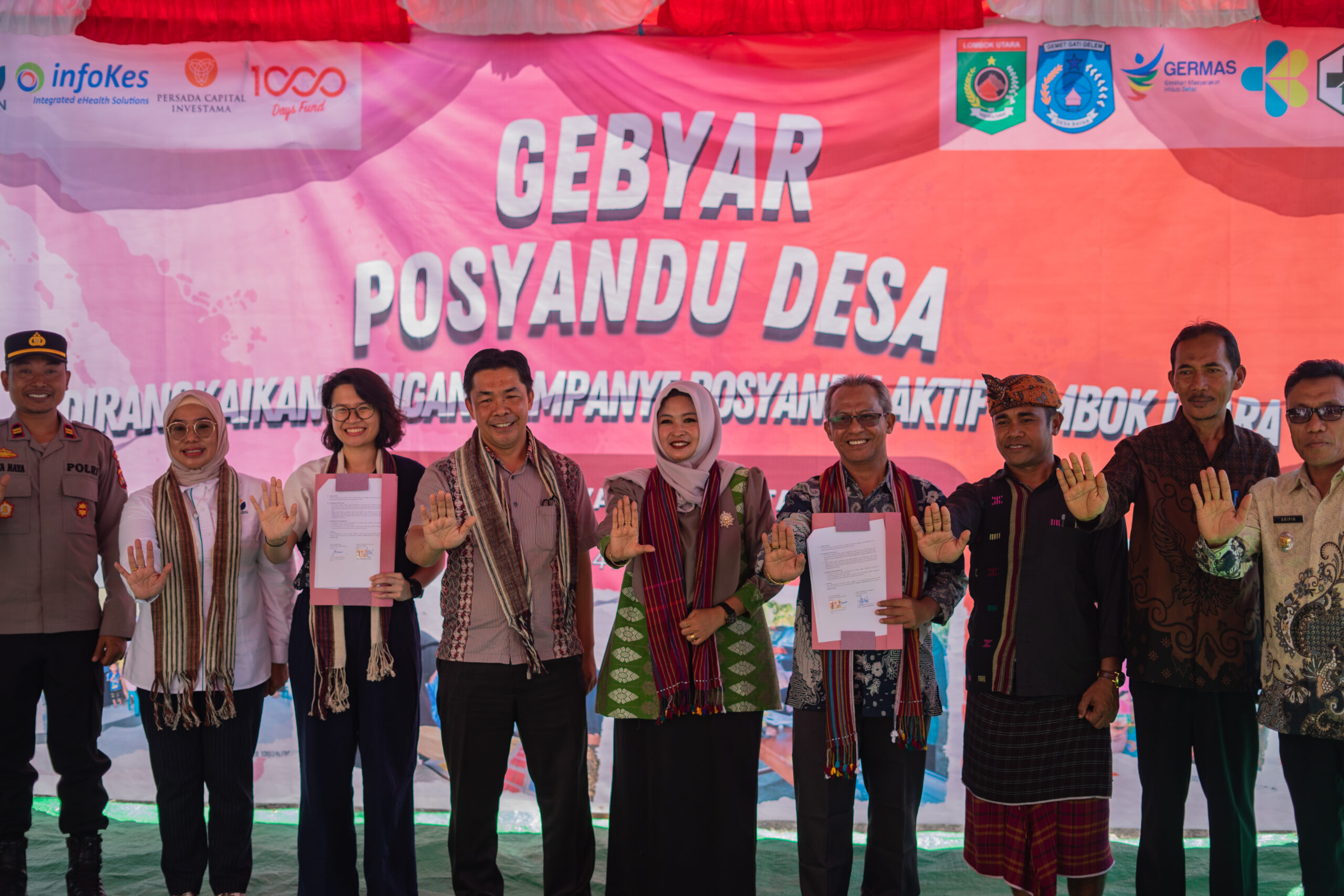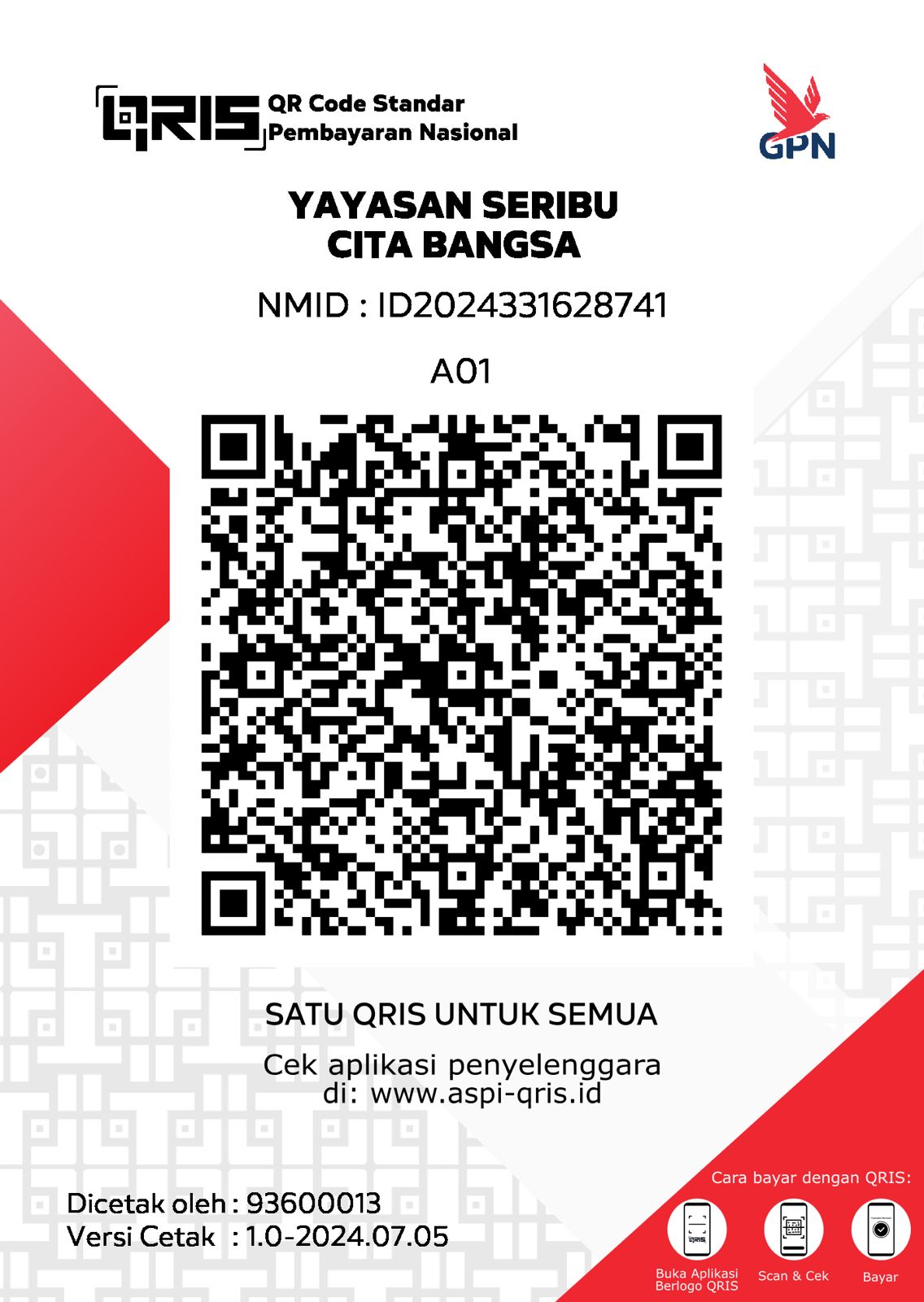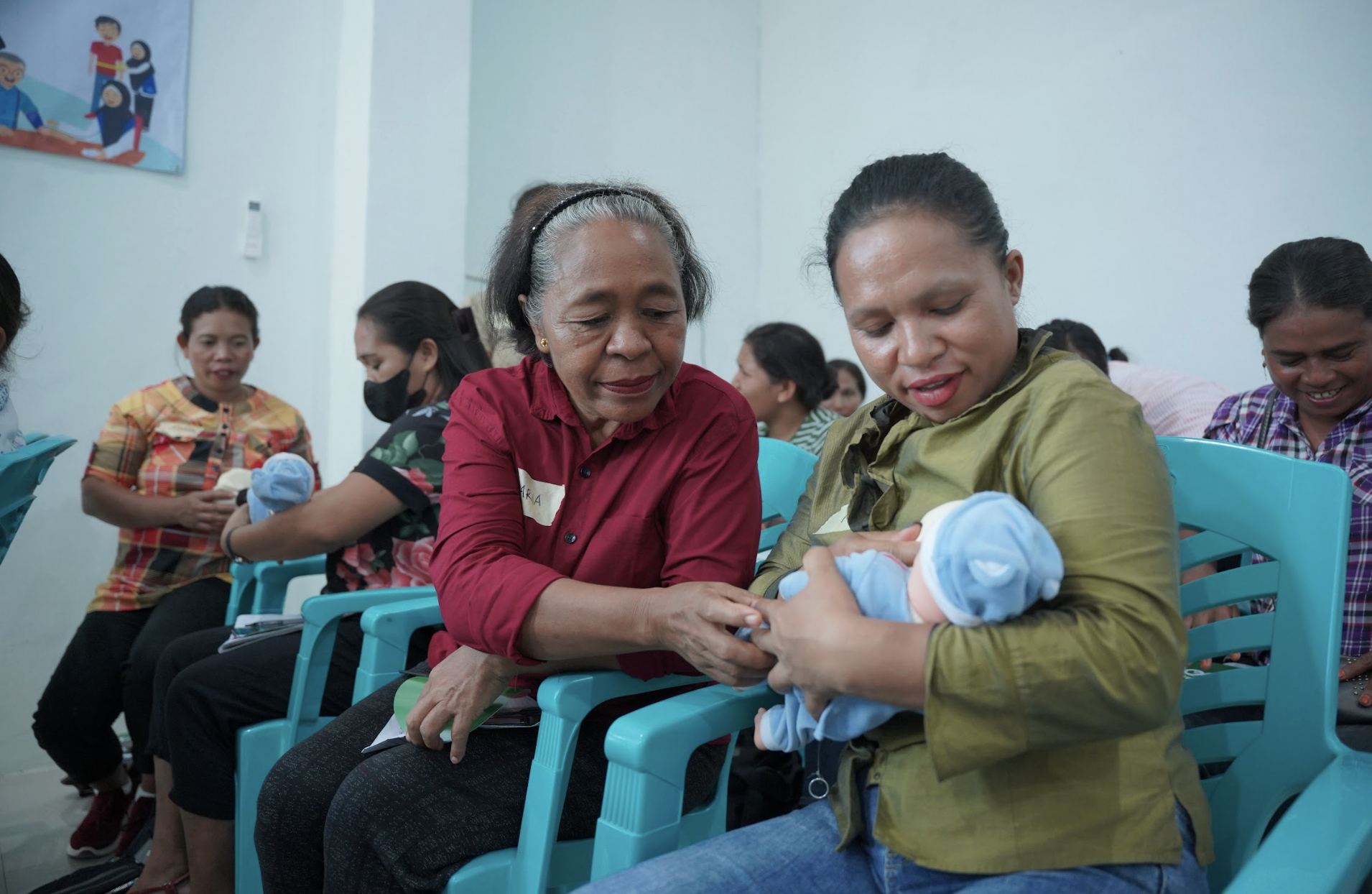NEWS
Meet Our New CEO: Q&A with Dr. Riri
- Mar 25, 2025
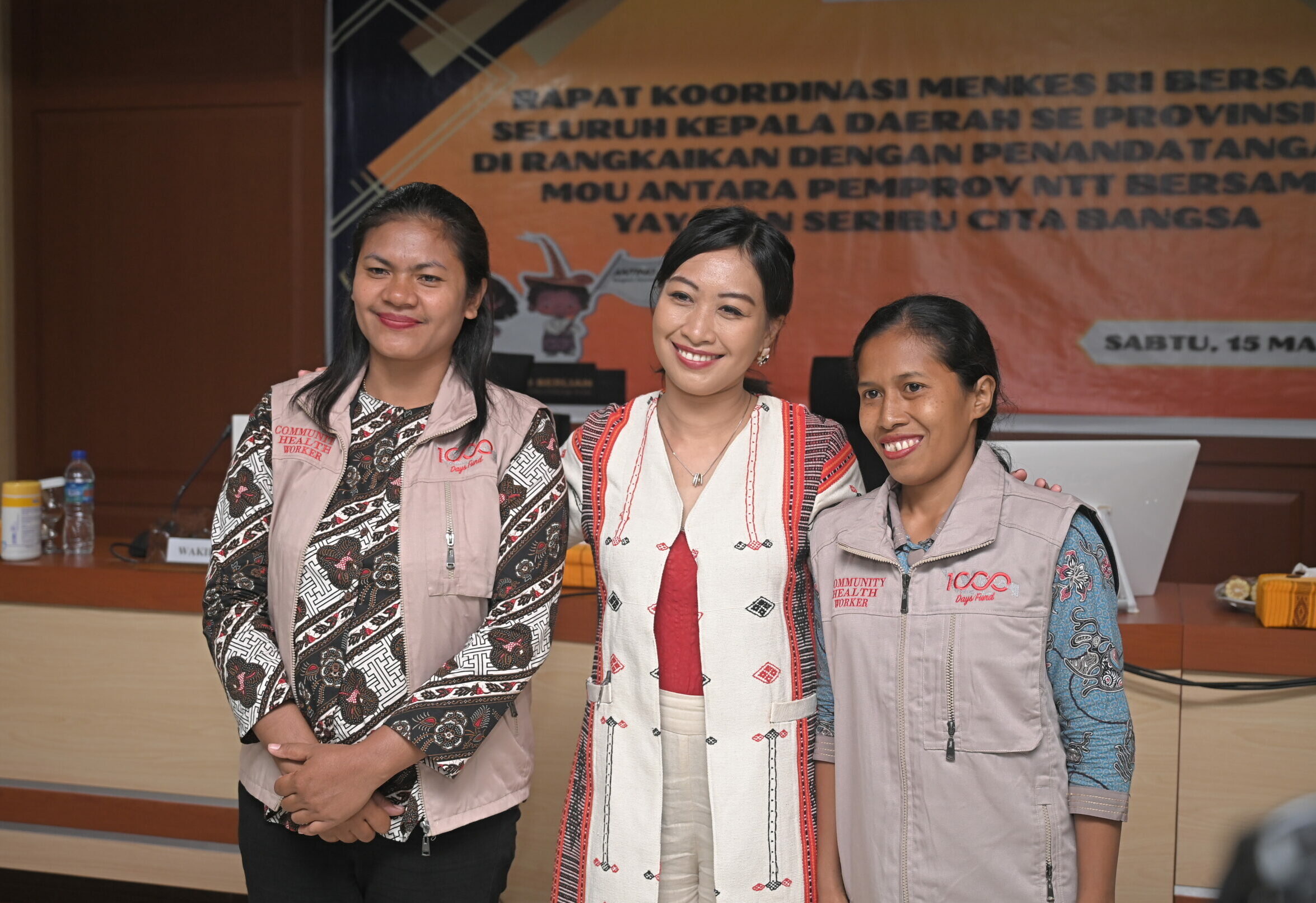
Between meetings here in Bali, we sat down with Dr. Riri to pick her brain on everything from the upcoming Skoll World Forum and her definition of scale, to why she quit climbing the corporate ladder after a weekend in Komodo with the 1000 Days Fund.
Riri is a doctor and a mother of three. But she’s so much more. Let’s dive into what makes her tick, why she’s such a fan of the 1000 Days Fund’s model and where she plans on taking the organization.
What was the defining moment that made you leave the private sector and begin your journey with 1000 Days Fund?
My journey with the 1000 Days Fund didn’t begin with a grand plan or a calculated career move. No, it began with a moment that shook me to my core; a moment that forced me to confront the harsh realities of a broken system.
As a doctor, I’ve seen suffering. As a mother, I’ve felt the deep, unshakable love for a child. But nothing could have prepared me for what I witnessed in that small, isolated village in NTT. A village that hadn’t seen a doctor in over five years. Can you imagine? Five years.
I was there to observe, to learn, but life had other plans. The Head of the community health center asked me to visit a family with a newborn who wasn’t doing well. The baby wouldn’t breastfeed, and he “got startled all the time.” When I walked into that home and saw that baby, my heart sank. He was severely dehydrated, and those startles? They were seizures… signs of brain damage. The family had no way to get him to a NICU in time. And just like that, within hours, he was gone.
As a doctor, I replayed every moment, wondering what I could have done differently. As a mother, I felt the crushing weight of that loss. But as someone who believes in the power of change, I made a vow. A vow to fight for a better system, to ensure that no mother, no family, would have to endure such pain because of a lack of access to care. That moment defined me. It set me on this path. And I haven’t looked back since.
What are your short, medium & long term goals?
When I think about goals, I think about them in layers…like building blocks that fit together to create something lasting and meaningful. In the short term, my focus is on the immediate needs: making sure we’re reaching as many families as possible with the resources and support they need right now. Whether it’s access to healthcare, nutrition, or education, these are the foundational steps that can change the trajectory of a child’s life, and I want to make sure we’re doing everything we can to deliver that impact today.
In the medium term, it’s about strengthening systems and building capacity. It’s not enough to just provide aid; we have to empower communities to sustain these changes on their own. That means training local health workers, supporting community leaders, and creating programs that can grow and adapt over time. It’s about creating a framework that allows people to thrive, even after we’ve stepped back.
And in the long term? It’s about transformation. It’s about addressing the root causes of inequity and creating a world where every child, no matter where they’re born, has the opportunity to reach their full potential. That’s the vision I hold onto—a world where access to healthcare, education, and nutrition isn’t a luxury, but a given. It’s a big goal, I know, but I believe it’s possible. Because when you’ve seen the resilience and strength of these communities, when you’ve felt the power of their hope and determination, you can’t help but believe in a brighter future. And I’m committed to doing whatever I can to help build it.
What are you looking forward to at Skoll?
You know, what I’m really looking forward to at Skoll is something quite simple, but so very important: genuine conversations. I’m excited to sit down with fellow changemakers… people who care deeply about making the world a better place, and talk about how we can turn our feelings of frustration and concern into actions that really help.
Sometimes, it’s easy to feel overwhelmed by all the challenges we see. But when we come together, when we share our thoughts and our feelings, we can find ways to make a difference. I’d love to have a cup of coffee with you and hear about what’s been on your heart. Maybe you’ve felt despair, or maybe you’ve had moments of doubt. That’s okay. We all have those feelings sometimes. And if you’re willing to share yours, I’ll share mine, too.
Because when we’re honest with each other, when we’re vulnerable, that’s when we can really connect. And from that connection, we can find new ideas, new energy, and new ways to move forward. So, let’s have those hard conversations. Let’s be honest about where we are and where we want to go. Together, we can find doable actions that will make a real difference in the world. And that’s something I’m really looking forward to.
What does impact mean to you?
Impact, to me, is about creating a lasting change that transforms not just individual lives, but entire communities. It’s when the difference you make becomes so consistent and tangible that people begin to believe in a new standard—a standard where hope replaces despair, and action replaces resignation. Impact is when a community, once passive in the face of hardship, becomes proactive because they’ve seen what’s possible and now demand it for themselves.
It’s also deeply personal. Impact is when the people on your team no longer see the families they serve as statistics or case numbers, but as individuals with names, stories, and dignity. It’s when they care not out of duty, but because they’ve witnessed the power of positive change firsthand. They’ve seen the smiles of children who are thriving, the relief of mothers who no longer fear for their babies’ lives, and the strength of communities that have found their voice. That’s when you know you’ve made an impact: when the work becomes human.
Impact is hope in action. It’s proof that change is possible, and it’s a reminder that every life matters. And that’s what drives me: to create a world where everyone, no matter where they’re born, has the chance to live with dignity, health, and hope.
What about scale? How do you define scale?
The same way everyone else defines it: casting a big net. Let’s be honest: it’s overrated if it sacrifices impact. I spend 95% of my time focused on creating real, lasting change for the communities we serve because they deserve nothing less. The other 5%? That’s for scale. True scale happens naturally when impact is done right. It’s not about reaching millions; it’s about changing lives deeply. Impact first, scale second. Always.
Tell us about your hobbies outside of 1000 Days Fund
Watching my kids grow, just being present in the moment. The daily magic of it we all often overlook: Audrey’s dimples and silly socks, Sienna’s signature ear-to-ear smile, Emma’s blonde streak in her hair. Reading the first 6 pages of a new book. Telling jokes… my family loves my mom jokes. I’m telling you, they LOVE it. Couldn’t get enough of it. That, and my elbow dance.
We know you are most comfortable in the field, what is it about being in the field that makes you keep coming back?
You know, there’s something about being in the field that stays with you… it gets under your skin, in the best possible way. It’s the connection, the humanity, the raw and unfiltered interactions with the communities we serve. That’s something you can’t replicate anywhere else. There’s a strange, beautiful balance in it: they need you, and yet, every time I leave, I feel like I’m the one who’s received so much more.
It’s humbling, really. To be welcomed with such openness, to be valued and accepted for what little I can offer. These communities, they don’t ask for much, just access, time, information. Things that should be basic, fundamental rights. But in so many places, these things are treated as luxuries. And that’s what stays with me, what fuels me. The injustice of it all. It’s maddening, really, because the solutions aren’t complicated. They’re simple, proven, and yet, so often out of reach for those who need them most.
That’s why I keep coming back. Because in the field, you see the gap between what is and what could be. You see the resilience of people who deserve so much more. And you feel the urgency of this work—not just to give, but to empower, to create systems that lift people up rather than hold them back. It’s not just about what we can do for them; it’s about what we can learn from them, and how we can all move forward together. That’s the power of the field. That’s why it calls me back, time and time again.
RECENT POSTS
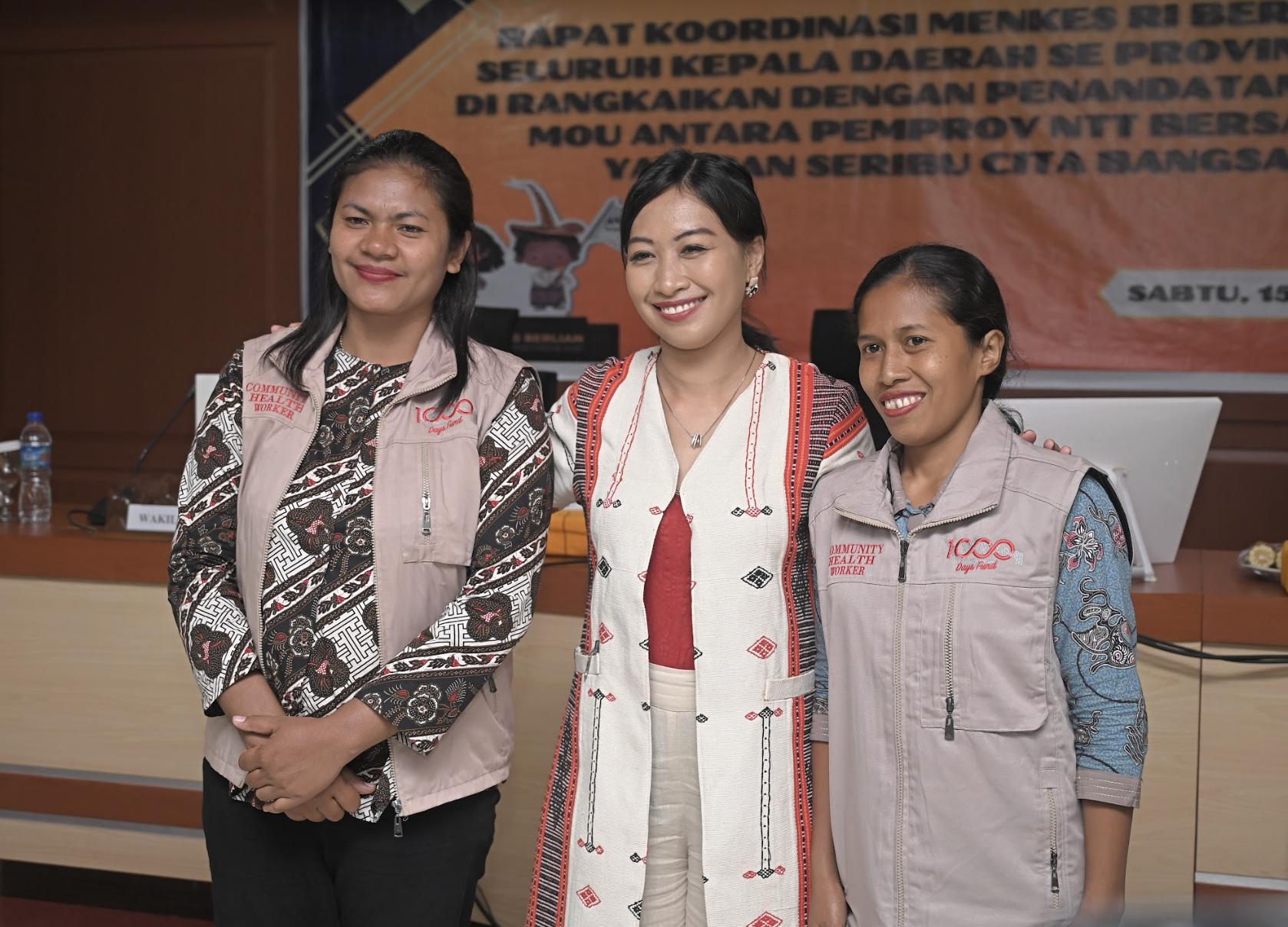
Scaling What Works: How Community Health Workers Moved the Needle on Stunting in Eastern Indonesia
09/12/2025
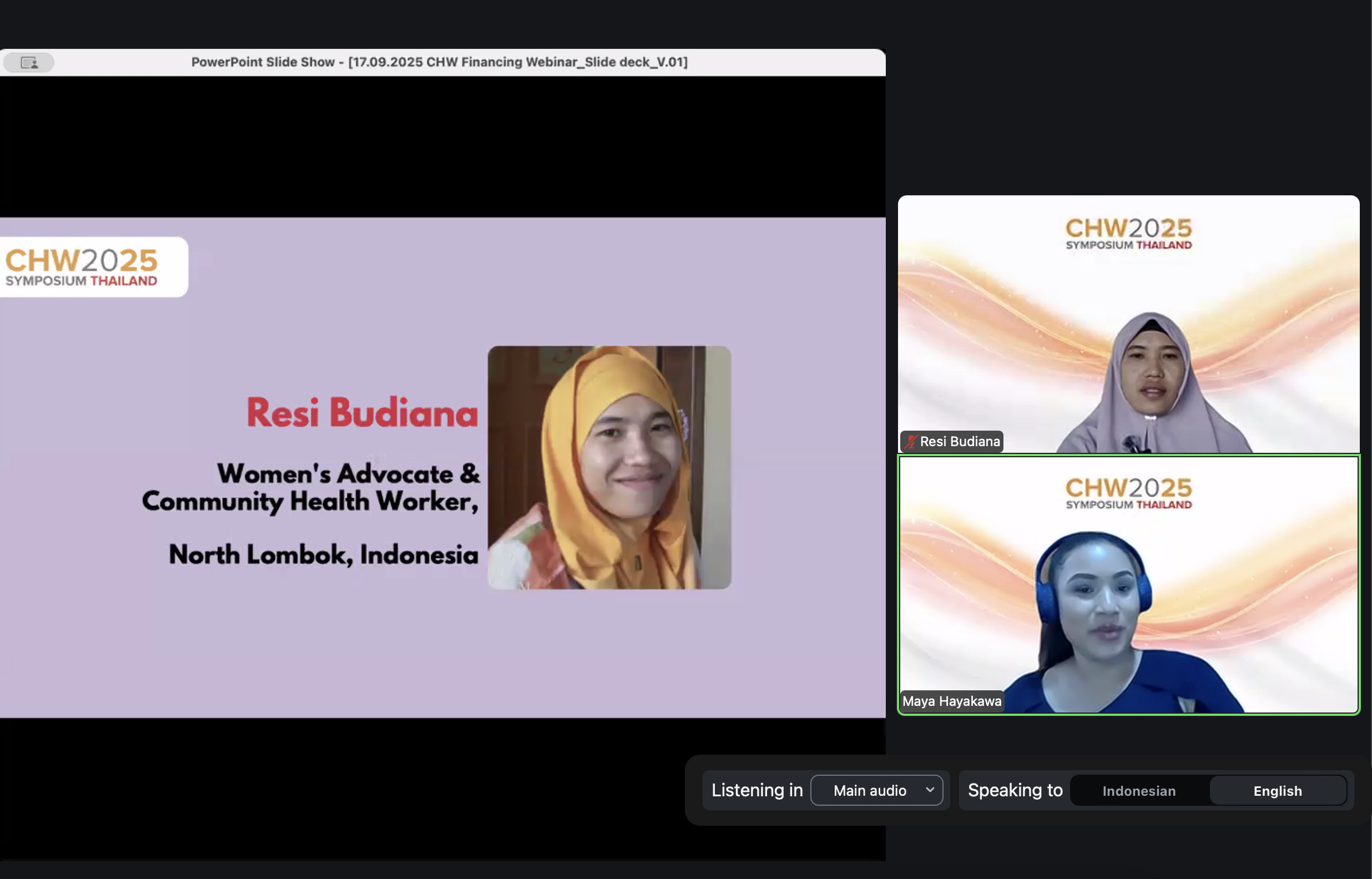
Resi Budiana Represents Indonesia at Global Community Health Worker Forum, Advocates for Standardized Training and Fair Incentives for CHWs
19/09/2025
